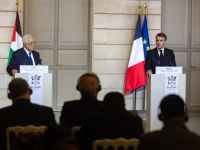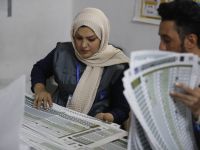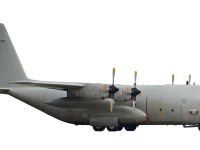The new government of billionaire Rafiq Hariri promised a series of privatization to spur growth and increase investment to tackle the country's economic crisis, without raising taxes or import duties.
The 33-page policy statement submitted to parliament by the new cabinet Tuesday focussed on resolving the economic crisis that "led to higher rates of unemployment, budget deficits and spiraling debts."
The government plan, facing a parliamentary vote of confidence in a session Thursday, set out plans for a series of privatization, without naming the sectors, "to boost growth through a more effective administration and at lower costs."
The government, which faces a spiraling debt expected to reach 25 billion dollars at the end of the year, also pledged to maintain fiscal and monetary stability.
Privatization "has proven its success in competitive sectors, in direct sales to strategic investors and sales to the public by transforming institutions to joint-stock firms, such as BOTs (Build, Operate, Transfer)."
The government pledged that privatization would "be within frameworks that prevent monopolies through an effective mechanism to supervise the sectors being privatized."
Plans had previously been made to privatize the ailing national carrier Middle East Airlines, as well as electricity and telephone state companies.
However the government policy admitted that "there are no magical solutions, so we cannot offer any kind of rosy promises."
"It is difficult to reduce expenditures, mainly because of expenditures for debt servicing and government employee salaries."
"Increases in expenditures would be strictly meant for sectors that could revive economic activity, increase growth and maintain the level of social services."
Resolving the deficit problem would be "through policies boosting growth ... because it allows the government to benefit from a larger share of national revenue, without having to increase taxes and customs rates."
Budget deficit is at more than 50 percent while debt servicing exceeded state revenues for the first time in July.
It also vowed to continue the ambitious multi-billion dollar rebuilding program launched after the end of the country's 15-year civil war in 1990.
Hariri, who was appointed prime minister last week, is considered the architect of the post-war rebuilding process that he had carried out under his three cabinets over his six years in office until 1998.
Many believe that Hariri, who used his large victory in this summer's legislative elections as a jumping board to return to power, is crucial to help Lebanon overcome its economic crisis.
However, his critics say he is a spendthrift who led a corrupt administration and an already feeble economy deeper into debt, using inflated interest rates to stabilize the Lebanese pound.
The previous Hariri governments succeeded in decreasing the rate of the Lebanese pound from 3,000 to 1,500 to the dollar – BEIRUT (AFP)
© 2000 Al Bawaba (www.albawaba.com)







